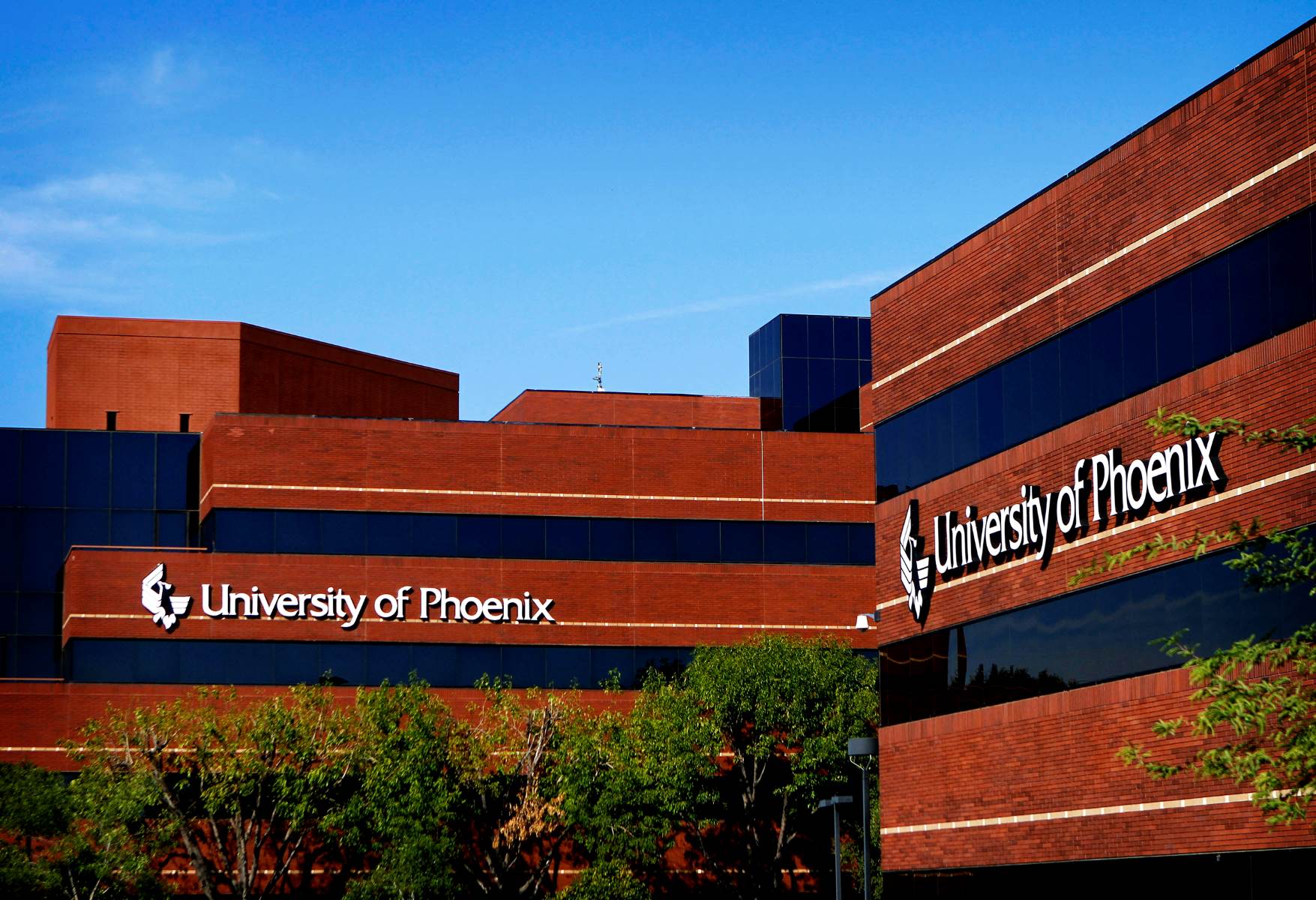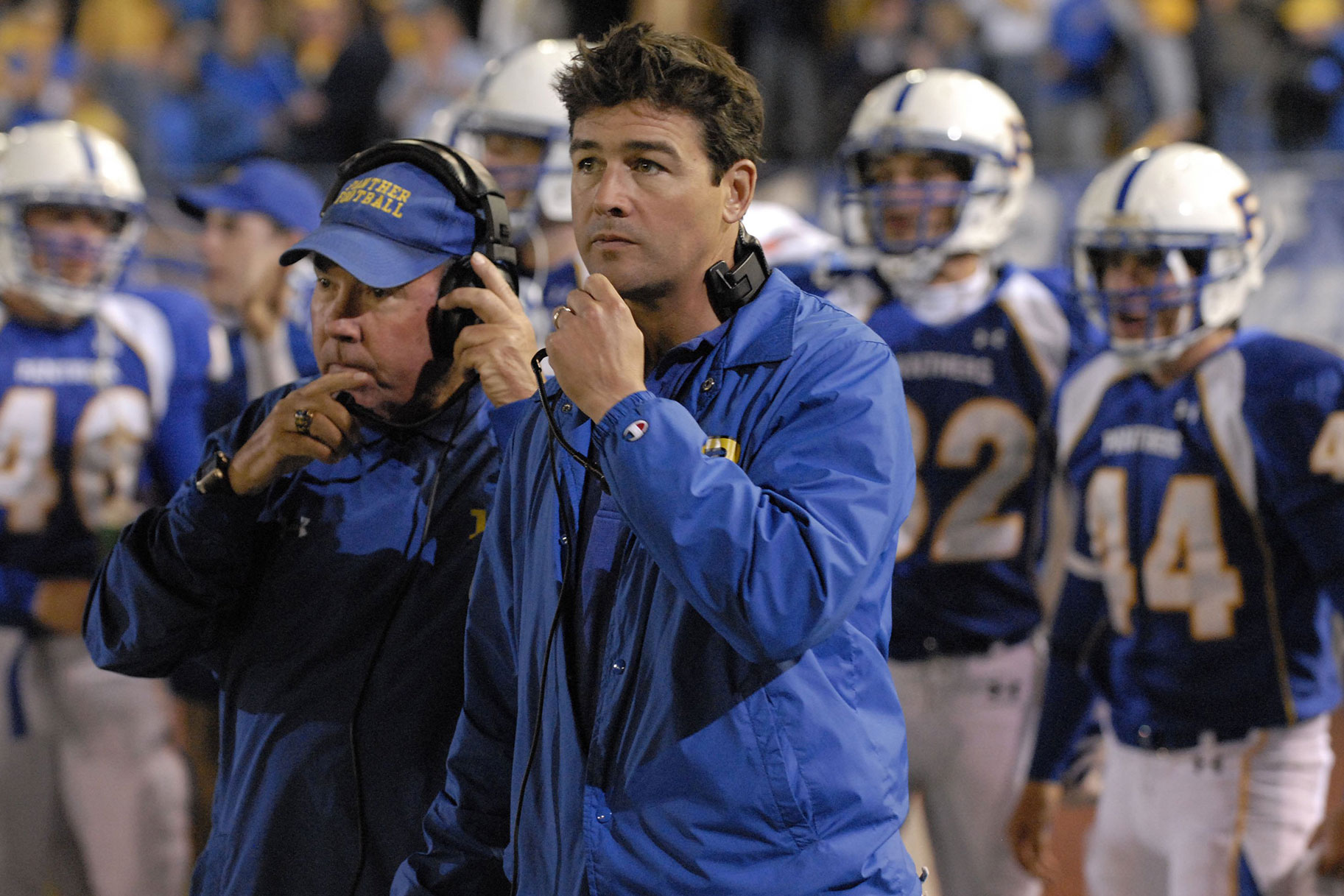Home>Education>University Of Phoenix: Laughingstock Or Legitimate Institution?


Education
University Of Phoenix: Laughingstock Or Legitimate Institution?
Published: January 5, 2024
Discover the truth about the University of Phoenix and its impact on education. Uncover whether it's a laughingstock or a legitimate institution in the field.
(Many of the links in this article redirect to a specific reviewed product. Your purchase of these products through affiliate links helps to generate commission for Regretless.com, at no extra cost. Learn more)
Table of Contents
Introduction
The University of Phoenix has been a subject of much debate and scrutiny in the realm of higher education. As one of the largest for-profit universities in the United States, it has garnered both praise and criticism. This institution has often been at the center of discussions regarding the quality of education, accreditation, and the overall student experience.
The controversy surrounding the University of Phoenix stems from its unique position as a for-profit university, which has led to questions about its legitimacy and the value of its degrees. Critics have raised concerns about the institution's recruitment practices, graduation rates, and the overall quality of education provided. On the other hand, supporters argue that the University of Phoenix offers accessible education to non-traditional students, including working adults and military personnel, who may not have the opportunity to pursue a degree through traditional means.
As we delve into the history, accreditation, student experience, and alumni success of the University of Phoenix, it becomes evident that a comprehensive understanding of this institution is essential. By exploring these facets, we can gain insight into the dynamics of for-profit education, the impact of accreditation on academic legitimacy, and the real-world outcomes for students who have passed through its halls.
The University of Phoenix represents a unique case study in the ever-evolving landscape of higher education. It is through a balanced examination of its history, practices, and outcomes that we can form a well-rounded perspective on the institution's standing in the realm of academia.
History of University of Phoenix
The history of the University of Phoenix is a testament to the evolution of higher education in the United States. Founded in 1976 by Dr. John Sperling, a Cambridge-educated economist and professor, the institution was established with the aim of providing accessible and flexible education to working adults. Dr. Sperling recognized the need to cater to the educational aspirations of individuals who were unable to pursue traditional, full-time degree programs due to work and family commitments.
The university initially operated as a night school, offering programs in business, management, and technology. Its innovative approach to education, which included evening classes and accelerated degree programs, quickly gained traction among non-traditional students. This marked the beginning of the university's commitment to serving adult learners, a demographic that was often overlooked by traditional higher education institutions.
In the 1990s, the University of Phoenix embraced online learning, a move that revolutionized its educational delivery model. This shift allowed students to access coursework and interact with faculty members and peers from the convenience of their homes or workplaces. The institution's embrace of online education positioned it as a trailblazer in the integration of technology and learning, setting a precedent for the digital transformation of higher education.
The university's expansion was rapid, with the establishment of numerous campuses across the United States. This growth was accompanied by an increase in enrollment, solidifying the University of Phoenix as a prominent player in the for-profit education sector. The institution's emphasis on practical, career-focused education resonated with a wide array of students, further fueling its expansion and influence.
As the University of Phoenix continued to evolve, it faced its share of challenges and controversies. Criticisms regarding recruitment practices, student loan default rates, and graduation statistics prompted regulatory scrutiny and public skepticism. Despite these challenges, the university's impact on the landscape of higher education cannot be overlooked.
The history of the University of Phoenix is a testament to its resilience and adaptability in the face of an ever-changing educational environment. By understanding its historical trajectory, we can gain valuable insights into the institution's mission, values, and the dynamics that have shaped its identity as a forerunner in non-traditional higher education.
Accreditation and Reputation
The University of Phoenix's accreditation and reputation have been pivotal in shaping perceptions of the institution within the academic and professional spheres. Accreditation serves as a crucial benchmark for evaluating the quality and legitimacy of an educational institution and its programs. It is a process through which external agencies assess whether a university meets established standards of academic excellence and operational integrity.
The University of Phoenix holds accreditation from the Higher Learning Commission (HLC), a regional accrediting agency recognized by the U.S. Department of Education. This accreditation attests to the institution's adherence to rigorous academic standards and its commitment to continuous improvement. Additionally, specific programs within the university have received specialized accreditation from reputable accrediting bodies, further validating the quality of education offered in those areas.
While the University of Phoenix's regional accreditation provides a foundation of legitimacy, its reputation has been subject to scrutiny and debate. The for-profit nature of the institution has led to questions about the motivations driving its educational practices. Critics have raised concerns about the prioritization of profits over academic rigor and student success, casting shadows on the institution's standing within the higher education landscape.
In contrast, supporters of the University of Phoenix emphasize its role in expanding access to education for non-traditional students. They argue that the institution's focus on practical, career-oriented programs aligns with the needs of working adults and individuals seeking to enhance their professional skills. Proponents also highlight the university's innovative use of technology in delivering education, citing its responsiveness to the evolving demands of the modern workforce.
The interplay between accreditation and reputation underscores the complexities of evaluating the educational value offered by the University of Phoenix. While accreditation provides a formal endorsement of academic quality, reputation reflects the perceptions and narratives that surround the institution. These narratives are shaped by a myriad of factors, including media coverage, student experiences, and the outcomes of alumni in the professional world.
As the University of Phoenix continues to navigate the terrain of for-profit higher education, the intersection of accreditation and reputation remains a focal point for ongoing discourse. It is within this intersection that the institution's commitment to academic integrity and student success converges with the external perceptions that influence its standing within the broader educational community.
Quality of Education
The quality of education at the University of Phoenix is a topic of significant interest and scrutiny, given the institution's position as a for-profit university. Evaluating the quality of education encompasses various dimensions, including curriculum design, instructional delivery, student support services, and the overall learning experience.
One aspect that sets the University of Phoenix apart is its focus on practical, career-relevant education. The institution's programs are designed to equip students with skills and knowledge directly applicable to their professional pursuits. This emphasis on real-world applicability resonates with non-traditional students who seek to enhance their career prospects while balancing work and family responsibilities.
The university's adoption of online learning has been a defining factor in shaping the quality of education it offers. Through its online platform, students have the flexibility to engage with course materials, participate in discussions, and collaborate on projects from virtually anywhere. This accessibility has expanded educational opportunities for individuals who may not have been able to pursue a degree through traditional, campus-based programs.
Moreover, the University of Phoenix has integrated industry-relevant insights into its curriculum, ensuring that students are exposed to current trends and practices within their fields of study. This dynamic approach to education aligns with the demands of a rapidly evolving job market, where adaptability and practical skills are highly valued.
In evaluating the quality of education at the University of Phoenix, it is essential to consider the institution's commitment to student support services. From academic advising to career counseling, the university strives to provide comprehensive assistance to help students navigate their academic journeys and transition into the professional realm.
While the institution's dedication to practical education and online learning has garnered praise, it has also faced criticisms regarding academic rigor and faculty qualifications. These concerns have prompted ongoing discussions about the balance between accessibility and educational standards in the for-profit higher education sector.
Ultimately, the quality of education at the University of Phoenix is a multifaceted subject that encompasses both strengths and areas for improvement. As the institution continues to evolve, its approach to curriculum development, instructional methodologies, and student support will play a pivotal role in shaping the educational experiences of its diverse student body.
The University of Phoenix's commitment to providing accessible, career-focused education has left a lasting impact on the landscape of higher learning, underscoring the importance of adaptability and innovation in meeting the educational needs of non-traditional students.
Student Experience
The student experience at the University of Phoenix is a reflection of the institution's commitment to providing accessible and flexible education for non-traditional learners. Central to this experience is the university's emphasis on accommodating the diverse needs of its student body, which predominantly consists of working adults and individuals with familial and professional responsibilities.
One of the defining aspects of the student experience at the University of Phoenix is the flexibility offered through its online learning platform. Students have the freedom to engage with course materials, participate in discussions, and complete assignments at their own pace and according to their individual schedules. This flexibility is particularly valuable for individuals balancing work, family, and other commitments, as it allows them to pursue higher education without disrupting their existing responsibilities.
The university's commitment to providing comprehensive student support services further enhances the student experience. From academic advising to tutoring resources, the institution strives to create a supportive environment that empowers students to succeed academically. Additionally, the incorporation of career counseling and professional development initiatives underscores the university's dedication to equipping students with the tools and guidance needed to navigate their career paths effectively.
Moreover, the University of Phoenix fosters a collaborative and inclusive learning environment through its virtual classrooms. Students have the opportunity to engage in meaningful discussions, collaborate on projects, and network with peers from diverse backgrounds and professional experiences. This interactive approach to online learning creates a sense of community and shared learning that transcends geographical boundaries, enriching the overall student experience.
While the university's commitment to flexibility and support services has been lauded, it has also faced scrutiny regarding student outcomes and retention rates. These concerns have prompted ongoing efforts to enhance the student experience and ensure that students receive the necessary resources and guidance to thrive academically and professionally.
In essence, the student experience at the University of Phoenix embodies the institution's dedication to meeting the unique needs of non-traditional learners. Through its flexible learning modalities, robust support services, and collaborative virtual classrooms, the university endeavors to create a student-centric environment that empowers individuals to pursue their educational and career aspirations while balancing the demands of everyday life.
The University of Phoenix's ongoing commitment to refining the student experience underscores its responsiveness to the evolving needs of its diverse student body, positioning it as a prominent player in the realm of non-traditional higher education.
Alumni Success
The measure of an institution's impact extends beyond the confines of its campus, resonating in the achievements and contributions of its alumni. The University of Phoenix, despite facing scrutiny and debate, has seen its graduates make significant strides in various professional domains, underscoring the tangible outcomes of its educational programs.
Many University of Phoenix alumni have demonstrated remarkable success in their respective careers, leveraging the knowledge and skills acquired during their academic pursuits to excel in diverse fields. From business leaders and healthcare professionals to educators and technology experts, the alumni network of the University of Phoenix spans a spectrum of industries, reflecting the institution's broad impact on the professional landscape.
The practical, career-focused education provided by the University of Phoenix has equipped its alumni with the tools to navigate the complexities of the modern workforce. The integration of industry-relevant insights into the curriculum has empowered graduates to adapt swiftly to evolving job market demands, positioning them as valuable assets in their respective fields.
Furthermore, the university's emphasis on online learning has nurtured a sense of adaptability and technological proficiency among its alumni, attributes that are increasingly essential in today's digital-centric work environments. The flexibility and accessibility offered by the institution have enabled alumni to pursue advanced degrees, professional certifications, and career advancements while balancing their ongoing commitments.
Beyond individual achievements, University of Phoenix alumni have contributed to their communities and industries, embodying the institution's ethos of practical application and social responsibility. Many have taken on leadership roles, initiated entrepreneurial ventures, and advocated for positive change within their spheres of influence, amplifying the ripple effect of their educational experiences.
While the University of Phoenix has faced criticisms regarding student outcomes, the success stories of its alumni stand as testaments to the institution's impact on the professional landscape. These stories underscore the transformative potential of accessible, career-oriented education in empowering individuals to realize their aspirations and make meaningful contributions to society.
In essence, the achievements of University of Phoenix alumni reflect the enduring value of the institution's educational programs and the tangible outcomes experienced by those who have traversed its academic pathways. As the professional journeys of its graduates continue to unfold, the institution's commitment to fostering career success and societal impact remains embedded in the narratives of its alumni.
Conclusion
The University of Phoenix stands at the intersection of accessibility, innovation, and controversy within the realm of higher education. Its journey from a pioneering night school to a prominent for-profit institution has been marked by both accolades and criticisms, shaping its identity as a trailblazer in non-traditional education. As we reflect on the institution's history, accreditation, academic quality, student experience, and alumni achievements, a nuanced understanding of its impact and significance emerges.
The University of Phoenix's commitment to providing accessible and flexible education has resonated with a diverse demographic of non-traditional learners, including working adults, military personnel, and individuals seeking career advancement. Its embrace of online learning has expanded educational opportunities, enabling students to pursue higher education without sacrificing their existing commitments. The institution's emphasis on practical, career-relevant programs has equipped its alumni with the skills and knowledge to excel in various professional domains, underscoring the tangible outcomes of its educational initiatives.
Amidst its successes, the University of Phoenix has faced scrutiny regarding student outcomes, retention rates, and perceptions of academic rigor. These challenges have sparked ongoing conversations about the balance between accessibility and educational standards in the for-profit higher education sector. The institution's accreditation from the Higher Learning Commission and specialized accrediting bodies provides a foundation of legitimacy, yet its reputation within the broader educational community remains subject to diverse narratives and perspectives.
In conclusion, the University of Phoenix embodies the complexities and dynamics of for-profit higher education, serving as a catalyst for discourse on accessibility, accreditation, and the evolving needs of non-traditional learners. Its history, marked by resilience and adaptability, reflects the transformative potential of education in empowering individuals to pursue their aspirations and contribute meaningfully to society. As the institution continues to navigate the ever-changing landscape of higher education, its dedication to academic integrity, student support, and alumni success remains integral to its enduring impact on the educational and professional spheres.













